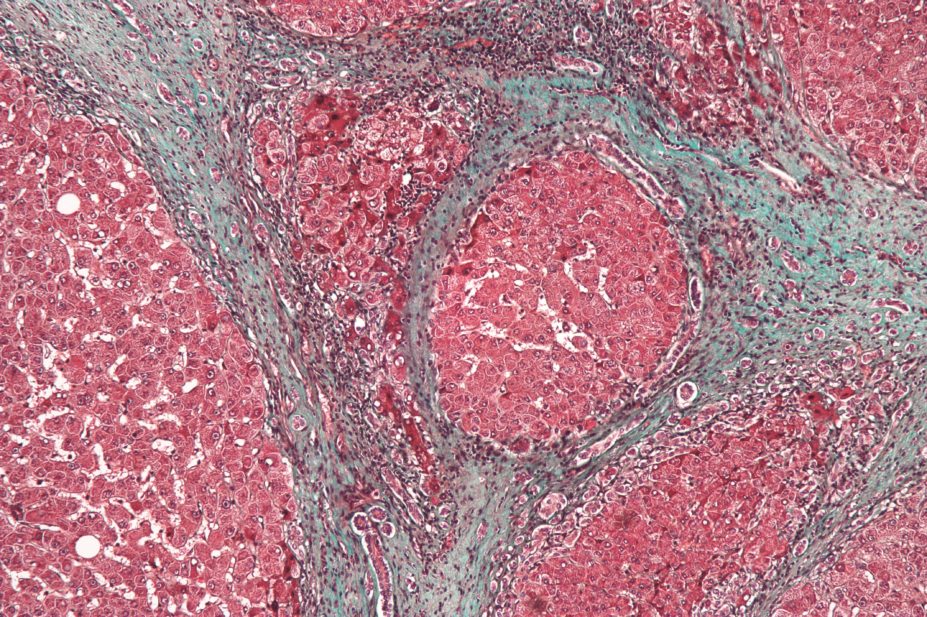
Nephron / Wikimedia Commons
Statins may benefit patients with cirrhosis of the liver caused by the Hepatitis B (HBV) or Hepatitis C (HCV) virus, according to the results of a Taiwan study published in Hepatology
[1]
(online, 20 March 2017).
Researchers found that cirrhotic patients who took statins showed a lower risk of decompensation — a failure of the liver to compensate for the overload generated by the disease — than non-statin users.
They conclude that statin therapy may be considered as an “adjuvant” therapy for preventing decompensation in patients with HBV and HCV-related cirrhosis of the liver but that more research was needed to confirm their findings.
The researchers based their results on an analysis of 1,350 patients with HBV or HCV-triggered cirrhosis between 2000 to 2013, who made use of Taiwan’s national health insurance scheme. They were divided into two equal groups of statin users and non-statin users.
They found that, for patients with cirrhosis, statin use of a cumulative defined daily dose (cDDD) of >28 decreased the risk of decompensation, mortality and hepatocellular carcinoma (p for trend: <0.0001,<0.0001 and 0.0009) compared to those who took no statins, or less than 28 cDDD.
There was a significantly lower risk of decompensation among statin users who had cirrhosis because of chronic HBV (adjusted hazard ratio [95% confidence interval], 0.39 [0.25—0.62]) or HCV (0.51 [0.29–0.93]).
References
[1] Chang FM, Wang YP, Lang HC et al. Statins decrease the risk of decompensation in HBV- and HCV-related cirrhosis: A population-based study. Hepatology. doi: 10.1002/hep.29172


